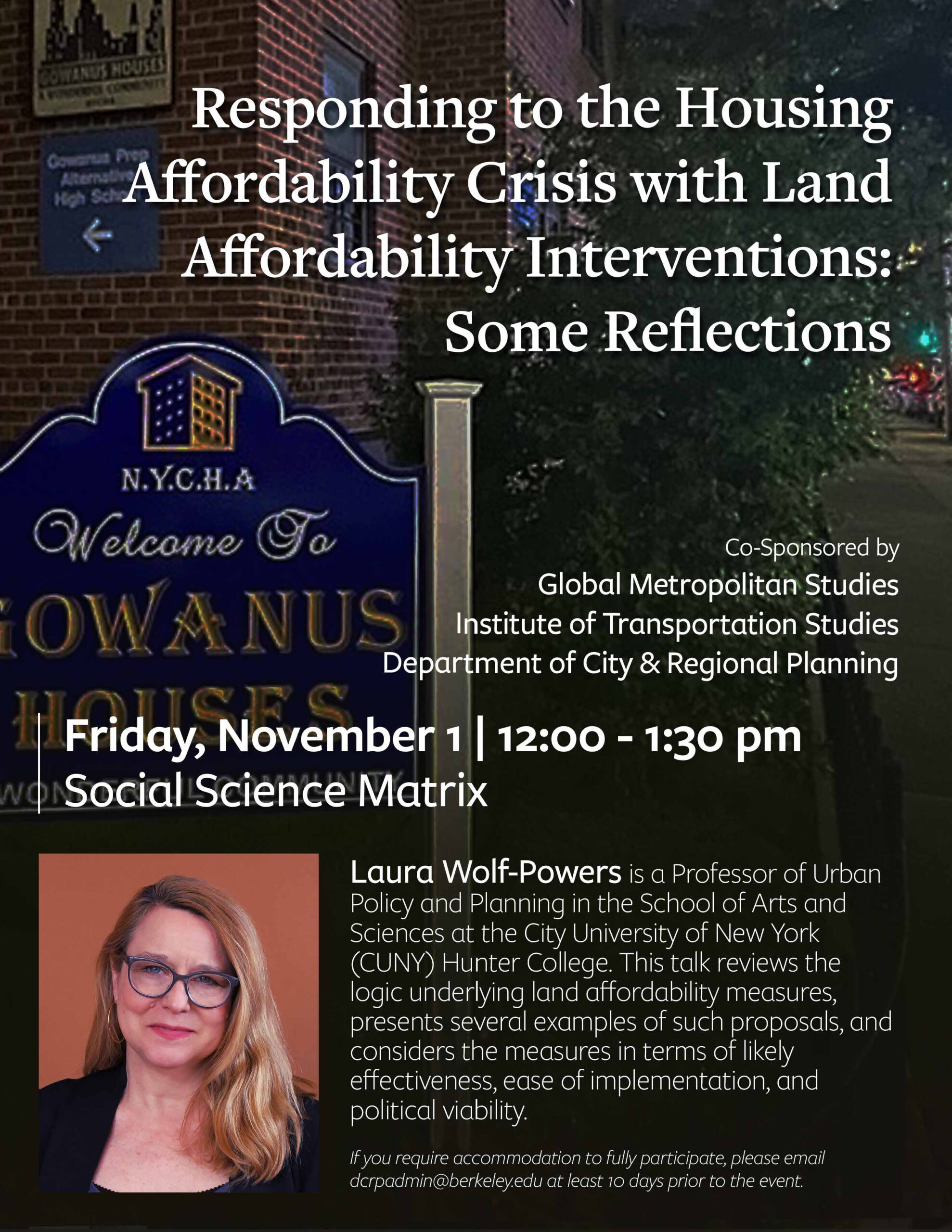Laura Wolf-Powers, Professor of Urban Policy and Planning in the School of Arts and Sciences at the City University of New York (CUNY) Hunter College
The housing policy mainstream perceives a supply shortage at the root of North America’s intensifying housing affordability crisis. The standard remedy, proposed for already-dense cities and single-family home-dominated suburbs and ex-urbs alike, is the liberation of repressed market development potential through the removal of restrictions on building (YIMBY). But voices dissenting from the “private supply” consensus are increasingly audible. Some are advocating for the reconfiguration of the supply apparatus – bringing the state robustly back in as a housing sponsor and funder. Others would use capital market regulation, fiscal policy, or anti-trust enforcement to stem the assetization of shelter. A third group of counterhegemonic proposals centers on measures to curb the tendency of land-value-creating events (up-zonings, development rights transfers, fiscal subsidies, public infrastructure investments) to become land-rent-seeking opportunities for those who trade in real property.
This talk presents a synoptic overview of land affordability proposals floated by U.S. and Canadian observers and considers their likely effectiveness, political viability, and ease of implementation. It makes the case that a focus on land affordability could stimulate the creation of lower-cost and permanently affordable housing, as well as more affordable space for industrial and commercial land users.
About the speaker: Laura Wolf-Powers is Professor of Urban Policy and Planning in the School of Arts and Sciences at the City University of New York (CUNY) Hunter College and a member of the faculty in Earth & Environmental Sciences at the CUNY Graduate Center. She teaches economic development, real estate development, community planning, and political economy. Her most recent publication is “Dilemmas of 21st Century Land Value Capture: Examining Henry George’s legacy in a New Gilded Age” (Environment and Planning A: Economy & Space, 2023)

